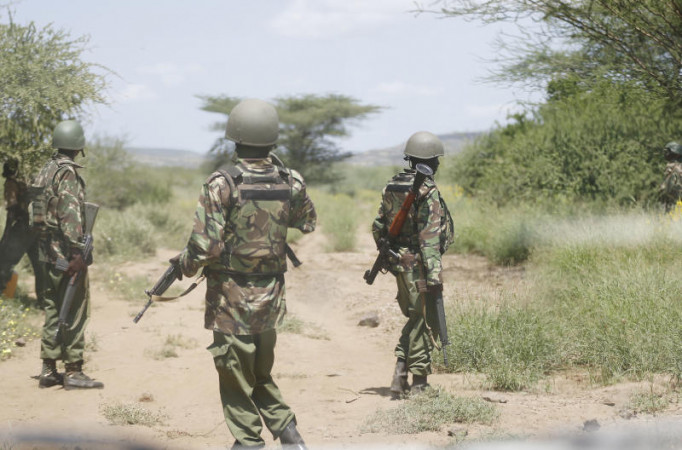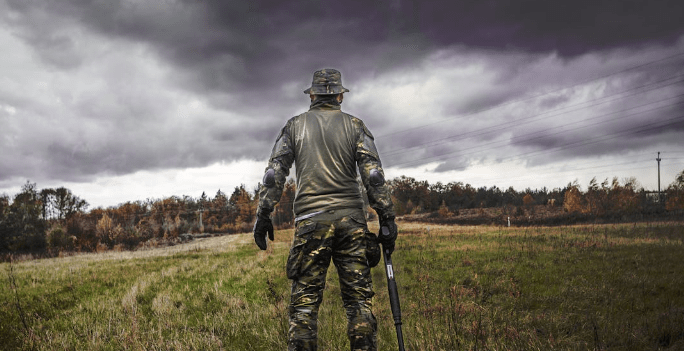What will it take to end banditry in North Rift?

Just what action should be undertaken to silence guns in the North Rift where hundreds of lives have been lost, property worth billion of shillings destroyed and thousands of families displaced?
Since time immemorial, the counties of Baringo, Turkana, West Pokot, Elgeyo Marakwet and Samburu have remained killing fields where the law of the jungle reign supreme with bandits condoning off the region as a no-go-zone for security officers.
So dangerous has the region become that it is only by the grace of God that officers, particularly those from the dreaded General Service Unit (GSU), posted to the region return home to their families alive.
More than 100 officers have lost their lives so far in the region.
Records indicate that most of the officers died through banditry attacks, especially within the North Rift. Others have been killed by robbers, colleagues, terrorists and even members of the public.
The largest number was on November 10, 2012 where 42 officers were killed in a single operation in Baragoi’s Suguta Valley.
Cattle rustling has always been a major security threat experienced in about 27 countries in Africa. In Kenya, the worst hit counties are West Pokot, Baringo, Laikipia, Turkana and Samburu.
A report by Intergovernmental Authority for Development 2017 showed that from 2014-17, the total livestock lost was estimated at a cost value of Sh6.05 billion while the cost of displacement in terms of compensation and offering support to the affected people was about Sh37.27 billion.
Previous successive governments and senior police officers have come up with various proposals to deal with cattle rustling menace in the region, without success.
Former Baringo North MP William Cheptumo says cattle-rustling is increasingly becoming a weekly and monthly occurrence in North Rift counties, causing victims untold suffering.
“Effects of cattle-rustling and banditry is massive because hospitals, learning institutions, water points in the affected areas have been vandalised and families displaced,” he said.
Cheptumo says the National Assembly had in 2018 passed a motion that sought to declare cattle rustling a national disaster, and therefore treat suspects and perpetrators implicated in the vice like terrorists.
It is a proposal shared by Nandi Senator Samson Cherargei, who wants Parliament to amend the Terrorism Act, that will enable the government deal with bandits.
“We must make hard and painful decisions to amend the Terrorism Act to ensure bandits who continue to kill our people along the North rift region are treated as terrorists. It is a threat to national security, I will lead the amendment to Terrorism Act,” Cherargei said at the weekend.
National security
He was speaking on Sunday during a thanksgiving service in Ainabkoi, Uasin Gishu county.
Leaders present at the service included Elgeyo Marakwet Senator Kipchumba Murkomen, President William Ruto’s aide Farouk Kibet and National Assembly Speaker Moses Wetang’ula. They all agreed that the government must formulate a strategy to deal with cattle rustling and banditry in the North rift.
Despite several measures that have been put in place, cattle rustling and armed attacks targeting security officers in the North Rift have continued.
Among the latest include the September 24 attack where bandits shot dead eight police officers, a local chief and two members of public as they were pursuing bandits from Pokot who had raided a village in Turkana East and stole livestock.
“A local chief, two members of the public and eight police officers succumbed to their injuries. We have dispatched additional officers to reinforce troops on the ground in beefing up security in the area and pursue the bandits,” National Police Service said after the attack.
After the attack, the government launched operation ‘Komesha Uhalifu’ to restore calm in the region.
Rift Valley Regional Coordinator Maalim Mohammed said security teams have so far recovered some weapons and rounds of ammunition, adding that additional officers with specialised equipment had been deployed in the area.
Since police officers are well trained, and prepared to handle any security situation, the death of a police officer has never been an ordinary occurrence.
Battle procedure orders require that officers undertaking such operations be adequately prepared and briefed on the ground, the situation, the execution and coordination. Former Inspector General of Police David Kimaiyo argues that the issue is so complex and can only be dealt with using a multi-pronged approach.
Kimaiyo said priority is to conduct proper disarmament in the area, come up with alternative means of livelihood and make it mandatory that all children go to school.
“As long as there are still firearms in the hands of the locals, the menace cannot be adequately dealt with,” he said.
Former GSU officer and security expert George Musamali observes that the recent attack where eight officers lost their lives was due to lack of planning.
“The officers were sent out at night and there was no planning. Officers are well trained but they should have been adequately equipped and briefed on the situation on the ground,” he said.
Security expert
According to Musamali, there was a need to treat bandits as very dangerous enemies and plan well on how to deal with the menace.
The service in 2016 for the first time acquired Armoured Personnel Carriers (APCs) to increase their mobility and protective gear when deployed to volatile areas or the frontier areas. However, they are not used all the time.
Another security expert, Dr Andrew Kimani, also a lecturer at Murang’a University of Technology, observed that cattle rustling has switched from traditional weapons including spears, bows and arrows to automatic weapons, which has been seen as an extension of modernisation. “The inter-communal cultural raids that were heavily regulated by taboos, customs, traditions and most importantly time and rarely involved the use of violence or spilling blood especially of women and children, has over time degenerated into murderous unregulated thieving and rustling sprees,” he said.
Dr Kimani recommends a number of issues including disrupting the stolen livestock markets, building schools, building a database for all livestock, which will make tracing and identification of livestock easier, establishment of military bases to help in addressing perennial insecurity.
“Doing so will be more efficient as the bases will improve security, boost economy and development, create job opportunities and build the infrastructure,” he said.
Experts also warn that the National Police Service should stop posting officers to North Rift and other insecurity prone areas as a punitive or disciplinary measure.
An inquiry by the Kenya National Commission on Human Rights established that the frequent attacks have not only led to closure of schools and slowed down development activities, but have also affected religious activities that would have spurred harmony in the region.
Report shows a total of 29 churches (17 Roman Catholic and 12 Full Gospel Churches) were abandoned or destroyed in Baringo, West Pokot, Turkana and Elgeyo Marakwet between 2005 and 2015.










